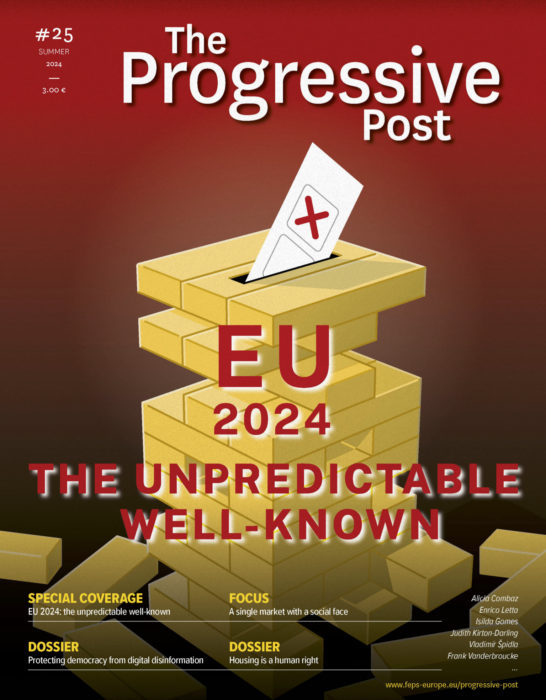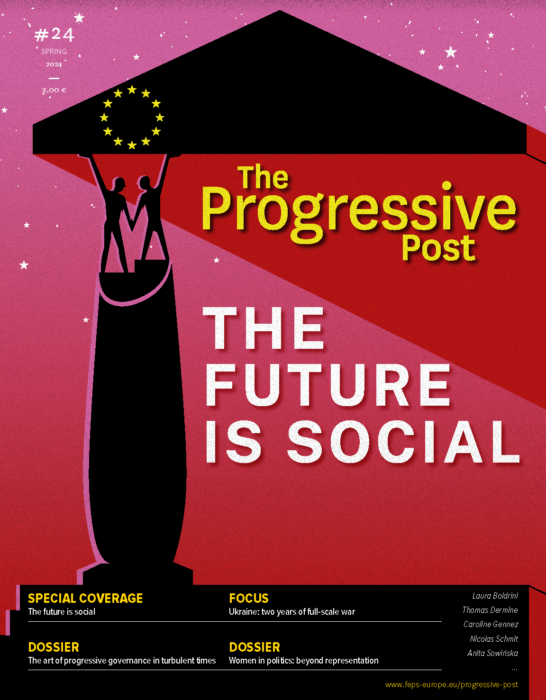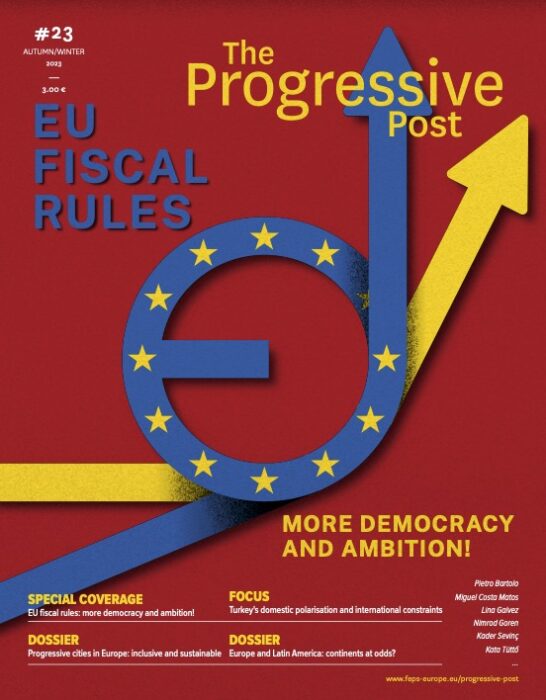
How could regional inequalities be tackled in a sustainable way? What opportunities do urban areas have to prevent social exclusion? Would it be time to even out the differences in well-being and access to welfare?
These are among the driving research questions powering the Unequal Europe project, a European collaboration led by the Foundation for European Progressive Studies and the Friedrich-Ebert-Stiftung, and based on indicators selected in collaboration with researchers from the Institut für Landes- und Stadtentwicklungsforschung.
The project has already led to the publication of analysis in Germany, Finland, Romania, Italy, Sweden. Work is currently underway also in Estonia.
The Policy Study on the European overview was presented in October 2021 at an event that counted with the participation of Nicolas Schmit, European Commissioner for Jobs and Social Rights.
***
#1 Unequal Germany. Socioeconomic Disparities Report 2019 Neither the strong economic growth nor the fact that more people in Germany are finding work these days have done anything to reduce the gulf that divides the country’s rich and poorer regions. Indeed, the gap between the dynamic and the disadvantaged regions has only increased. The federal state’s levelling of inequalities between the Länder no longer works. This study shows that socio-economic inequality in Germany has become further entrenched in recent years. What is more, while some cities are booming, whole regions are at risk of being left behind for the foreseeable future.
» Publication | Map
#2 Unequal Finland: Regional socio-economic disparities in Finland On the outset and in international comparison, Finland has developed one of the wealthiest and most generous welfare states in the world, with low levels of income inequality and high social mobility. A deeper look reveals deepening regional disparities, leading to the observation that, in fact, there are four Finlands.
» Publication | Interactive Map | Event
#3 Unequal Romania: Regional socio-economic disparities in Romania In recent years Romania has been the fastest growing economy of the EU. Still, at the same time, the last decade has also been a period of ongoing emigration and increasing spatial disparities. The economic benefits of European integration were not distributed equally across the country, and despite increasing regional disparities, the issue was hardly prioritised by political decision-makers during the last three decades. The report identifies current spatial variations of strengths and weaknesses in light of future risks and challenges for the country, and calls for new national and European policies to address the issue.
» Publication | Interactive Map | Event
#Related An inegalitarian France The gilets jaunes (yellow or "hi viz" vests) protests in France have brought to light far-reaching regional grievances and socioeconomic disparities that run counter to the aspiration to equal living conditions for all. A closer look at these regional disparities shows a "fragmented" country, riven at all administrative levels by numerous faultlines. Despite – or perhaps even because – of the centralised redistribution policy an active state is no longer discernible for many people living in the regions.
#4 Unequal Italy: Regional socio-economic disparities in Italy Historically, Italy has been characterised by a marked divide between North and South, but there are profound differences, specific strengths and weaknesses, and untapped potential in both areas. The report identifies and analyses "four Italies" and "three Mezzogiornos" before proposing precise policy recommendations to remedy the country's socio-economic disparities.
» Publication | Interactive Map | Event
#5 Unequal Sweden: Regional socio-economic disparities in Sweden Internationally, Sweden is still associated with a growth model that secures a high level of social equality via a strong universal welfare state. However, this perception overlooks a distinct rise in inequalities over the past 30 years. Successive market-based reforms and structural change have created distinct regional socioeconomic disparities. This leads to the observation that there are four Swedens.
» Publication | Interactive Map | Event
#6 Unequal Europe - Tackling Regional Disparities in the EU In the European Union, a social and spatial polarisation has emerged between economically developed centres and peripheral regions, each reinforcing the upward or downward movement of the other. In this report, Dr Björn Hacker recommends a shift from the current paradigm of competition and growth to an integrated European economic and social policy aimed at building protection and resilience in the face of global challenges such as pandemics or climate change.
» Publication | Event
#7 Unequal Estonia - Tackling Regional Disparities in Estonia In recent years Estonia has been among the fastest growing economies of the EU and has successfully established itself on the global mind map as a land of opportunity for digital transformation. However, a closer look reveals an uneven picture of the Estonian growth story. Similar to other European countries, economic, digital and ecological transitions have amplified structural change. The capability to adapt to these changes in society and economy is unequally spread, with some regions benefiting from change and others falling behind. The Estonian regional disparity report identifies current spatial variations of strengths and weaknesses in light of future risks and challenges for the country and calls for new national and European policies to address the issue.
» Publication | Interactive Map
***
Events
Related materials















